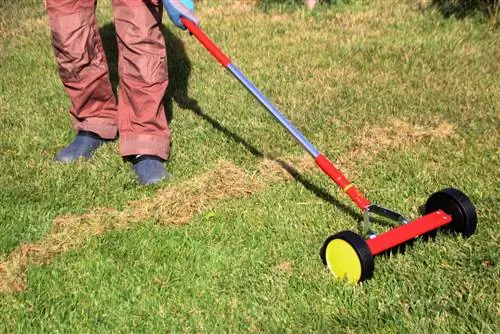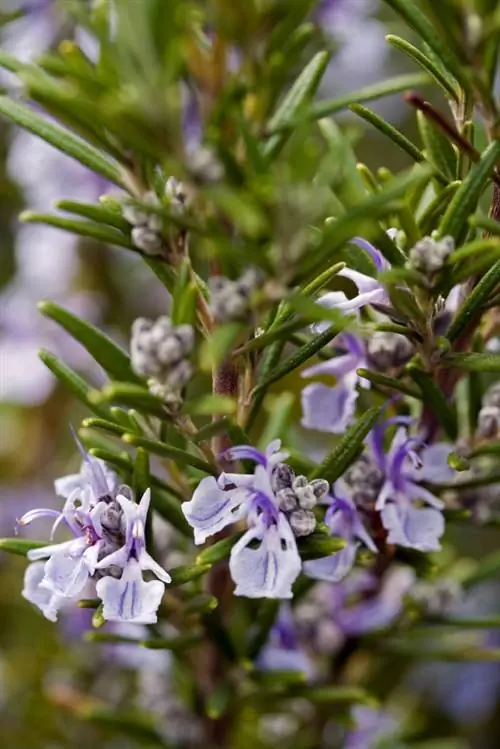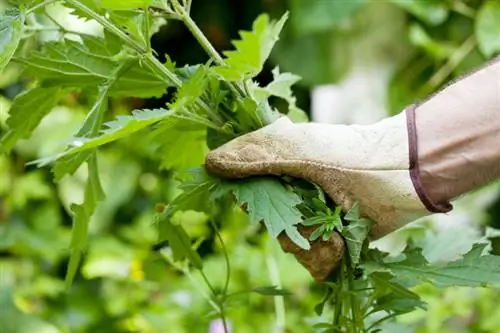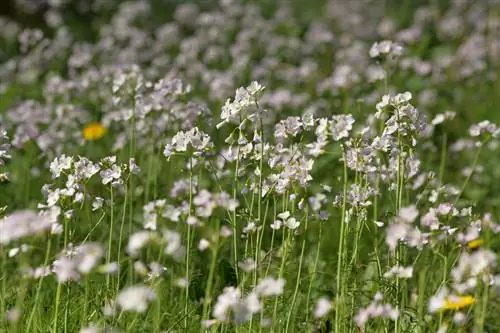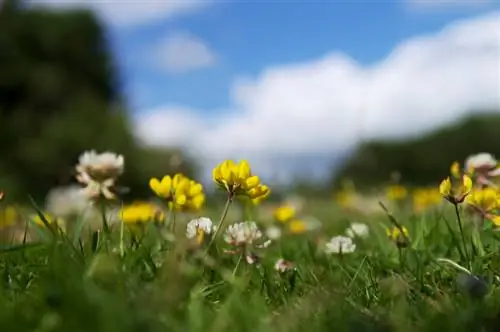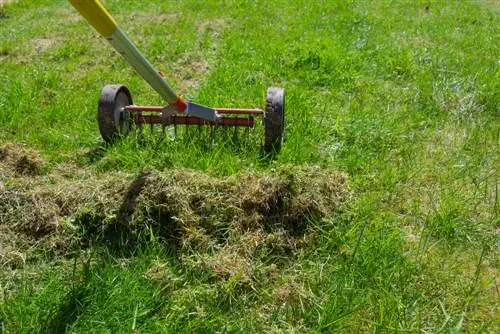- Author admin leonars@hobbygardeners.com.
- Public 2023-12-16 16:46.
- Last modified 2025-01-23 11:21.
The optimal lawn, at least from the point of view of many garden owners, is nice and thick and green and rarely needs to be mowed. Maybe a few daisies can be seen, but there is no room for moss and clover.
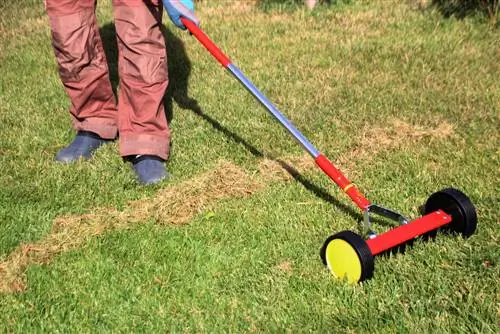
What can you do about clover and moss in the lawn?
To combat clover and moss in the lawn, you should prepare the soil well, use high-quality seeds, mow regularly and use fertilizer containing nitrogen. It is also recommended to stop fertilizing in autumn and to remove weeds by scarifying or cutting out.
Why do moss and clover grow in the lawn?
Moss likes to grow where it is shady and moist. This is why you see moss on the lawn mainly under trees or in the shade of the house. Clover, on the other hand, grows primarily on poor and calcareous soils. Since it can produce its own nitrogen thanks to a symbiosis with so-called nodule bacteria, it does not rely on fertilizer supply.
How can I prevent moss and clover?
Since moss and clover cannot be removed from the lawn quickly or easily, it is best to prevent the growth of these plants when planning your garden. This is achieved by preparing the soil optimally for your lawn.
To do this, enrich the soil with nitrogen, for example by adding horn meal (€6.00 on Amazon). Then sow a high-quality seed mix for lawns. This mainly contains densely growing grasses, but grows a little slower.
Are there home remedies for moss and clover?
Special lawn herbicides have a selective effect; they only act on the lawn weeds to be controlled, but not on the grasses. That sounds good at first, but the effect is limited to the above-ground parts of the plant. The roots and underground runners of the clover are spared. This means the clover quickly spreads again to an undesirable extent.
Home remedies include s alt and vinegar against moss and clover. However, they can harm other plants and also animals, so their use is not recommended. It is better, but also more laborious, to scarify the lawn and then apply targeted fertilizer.
The most important things in brief:
- Prepare the soil well
- use high-quality seeds
- Mow the lawn regularly, but not too short
- Use nitrogen-containing fertilizer regularly
- do not fertilize from autumn onwards
- Destroy or remove weeds by scarifying them
Tip
Use a high-quality seed mixture for reseeding bare spots in the lawn.

